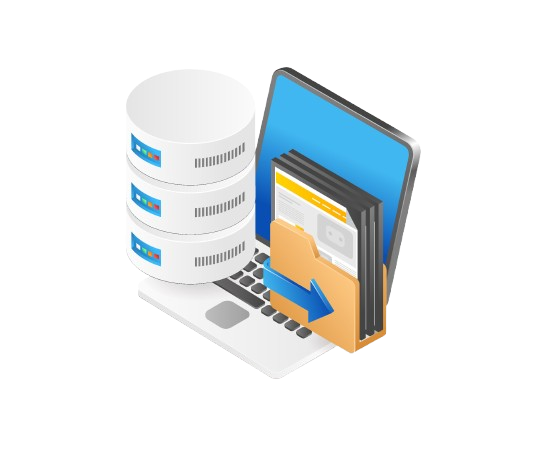Data Migration as a Business Strategy, Not Just Tech

Data migration is no longer a back-end technical project hidden away in IT departments. It has evolved into a core business strategy a driver of innovation, agility, and long-term growth. Businesses in the UAE and across the globe are realizing that moving data is not simply about shifting files from one system to another it’s about unlocking business value, enabling data-driven decisions, and preparing the enterprise for the next wave of artificial intelligence (AI) and digital transformation.
This article explores why data migration should be seen as a strategic initiative, how it supports innovation, and why organizations must rethink their approach to data management, analytics, and cloud adoption.
Traditionally, data migration projects were considered a “necessary evil.” Organizations migrated data only when moving to new infrastructure, consolidating systems, or implementing enterprise software upgrades. The focus was often limited to cost savings, minimizing downtime, and ensuring data integrity.
However, in the modern business landscape, this mindset is outdated. Today, data migration in UAE enterprises is viewed as:
In short, data migration is no longer just tech it is a business transformation strategy.
The UAE is positioning itself as a global hub for digital innovation. From financial institutions and healthcare providers to logistics and retail enterprises, organizations are accelerating their cloud adoption strategies. According to regional market reports, over 60% of UAE companies plan to increase investment in cloud and AI technologies by 2026.
For these businesses, data migration services in UAE are not only about IT efficiency. They are about:
When executed strategically, data migration solutions deliver far-reaching business value:
Migration projects often involve data cleansing, standardization, and validation. This ensures that businesses rely on accurate, consistent, and actionable insights, which fuel everything from customer experience personalization to financial forecasting.
Cloud-to-cloud and hybrid migrations allow UAE organizations to adopt scalable cloud platforms. This flexibility empowers businesses to rapidly launch new services, expand into new markets, and integrate emerging technologies without being restricted by legacy infrastructure.
Generative AI models thrive on large volumes of high-quality, centralized data. Without robust data migration strategies, businesses struggle to deploy AI effectively. In the UAE, industries like banking, healthcare, and smart cities are already experimenting with AI making data migration a critical enabler.
A well-planned migration incorporates data encryption, access control, and compliance checks. In highly regulated industries, businesses in the UAE need migration strategies that align with local laws and international compliance standards such as GDPR and HIPAA.
Strategic migration eliminates redundant systems, optimizes cloud costs, and supports pay-as-you-go models. This ensures better return on investment (ROI) and makes technology spending more predictable for business leaders.
Despite its strategic importance, many UAE businesses face challenges in executing migration projects:
Overcoming these challenges requires expert migration services that combine technology, governance, and business alignment.
To treat migration as a business strategy, UAE organizations must adopt a structured approach:
Migration should align with business goals, not just IT checklists. Objectives may include improving customer experiences, enabling AI adoption, or reducing operational risks.
Organizations must evaluate the quality, location, and volume of existing data, identifying redundancies and prioritizing high-value datasets.
Options include:
Every migration strategy should include end-to-end encryption, identity management, and compliance audits.
Data migration is not a one-time project. Businesses must continuously monitor, optimize, and modernize their data architecture to stay competitive.
Several industries in the UAE highlight how data migration strategies are transforming business outcomes:
The next wave of business transformation in the UAE will be driven by data-centric technologies generative AI, IoT, blockchain, and predictive analytics. For all these innovations to succeed, businesses must first ensure their data is centralized, accessible, and secure.
Thus, data migration will remain the foundation of digital transformation strategies in the UAE. Forward-thinking leaders will no longer treat migration as a one-off IT task, but as a continuous business enabler that drives agility, resilience, and innovation.
Data migration is not just technology it is business strategy. UAE enterprises that embrace migration as a strategic enabler will gain a competitive edge in unlocking analytics, driving innovation, ensuring compliance, and supporting AI deployment.
By rethinking data migration in this way, organizations future-proof themselves for a world where data is the most valuable business asset.
Contact for personal support: connect@dataguardnxt.com